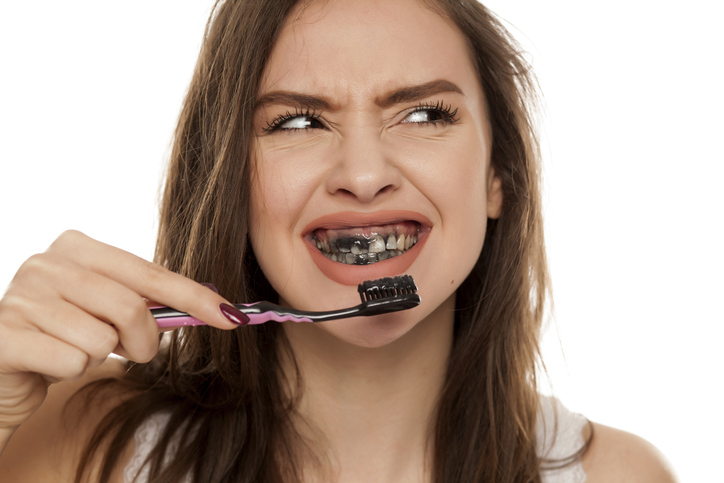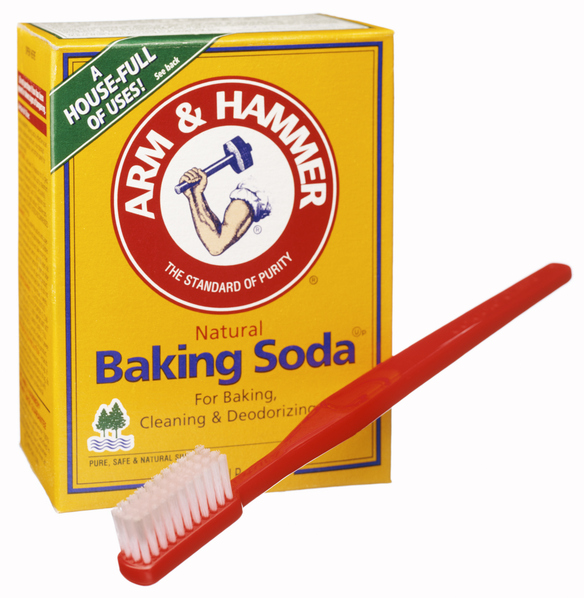Many people turn to “natural remedies” for healthy gums in hopes of avoiding dental procedures or using chemicals. Some of these remedies are backed by research and can support gum health, while others are ineffective—or worse, harmful. This blog will help you separate fact from fiction and provide guidance on maintaining healthy gums. Plus, we’ll share how a periodontist, like Dr. Trujillo in Phoenix, AZ, can be your best ally for improving and maintaining gum health.
Why Gum Health Is Important
Your gums do more than keep your smile intact—they’re important for your overall oral health. Healthy gums create a strong foundation for your teeth and protect the underlying bone. When gums become inflamed or infected, conditions like gingivitis and periodontitis can develop, leading to tooth loss, systemic health issues, and more.
While good oral hygiene is the cornerstone of gum health, many people seek natural remedies for added protection or to address gum problems. Let’s explore what works and what doesn’t.
Popular “Natural Remedies” for Gum Health
1. Oil Pulling
What It Is: Swishing oil, such as coconut or sesame oil, in your mouth for several minutes.
The Claim: Oil pulling can remove toxins, reduce bacteria, and promote healthier gums.
The Truth: While oil pulling may help reduce the number of bacteria in your mouth, it’s not a substitute for brushing, flossing, or professional care. It may offer a slight reduction in plaque and gingivitis, but it won’t reverse gum disease. Use it as a supplement—not a replacement—for a solid oral hygiene routine.
2. Saltwater Rinse
What It Is: Gargling with warm salt water to soothe gums and kill bacteria.
The Claim: Saltwater reduces inflammation, fights bacteria, and promotes healing.
The Truth: Saltwater rinses can be a helpful short-term remedy, especially after dental treatments or injuries. They reduce inflammation and promote healing but should not replace routine dental care. Overuse of saltwater rinses can dry out your mouth, so use them sparingly.
3. Aloe Vera
What It Is: Applying aloe vera gel directly to the gums.
The Claim: Aloe vera’s antibacterial and anti-inflammatory properties can heal gums and fight gum disease.
The Truth: Aloe vera does have soothing and healing properties, and some studies suggest it can help reduce gum inflammation. However, it should be used as a complement to professional care. Make sure to use pure aloe vera gel, free of additives and sugars that could harm your gums.
4. Green Tea
What It Is: Drinking green tea or using green tea extracts.
The Claim: The antioxidants in green tea can reduce inflammation and fight harmful bacteria.
The Truth: Green tea is a natural source of antioxidants like catechins, which have been shown to support gum health and reduce inflammation. Drinking a cup or two of unsweetened green tea daily can be beneficial, but it won’t replace professional dental treatments if gum disease is present.
5. Essential Oils
What They Are: Oils like tea tree oil, clove oil, or peppermint oil applied to the gums or used in mouthwashes.
The Claim: Essential oils can reduce bacteria, inflammation, and pain in the gums.
The Truth: Some essential oils, like tea tree oil, have antimicrobial properties, but they can also irritate the gums if used improperly. Always dilute essential oils before use and consult your dentist before trying them. Avoid self-diagnosing or relying on essential oils for gum health without professional guidance.
6. Apple Cider Vinegar
What It Is: Rinsing with or drinking diluted apple cider vinegar.
The Claim: Apple cider vinegar can kill bacteria and improve oral health.
The Truth: Apple cider vinegar is highly acidic and can erode tooth enamel and irritate gums. It’s not recommended for gum health, as the risks outweigh any potential benefits. Stick with less abrasive options.
7. Baking Soda
What It Is: Using baking soda as a toothpaste or in rinses.
The Claim: Baking soda can neutralize acids, reduce bacteria, and prevent gum disease.
The Truth: Baking soda can help neutralize acids in the mouth and gently clean teeth, but it’s not a cure for gum disease. Overuse can damage enamel and irritate gums, so use it sparingly.
The Role of a Periodontist
Natural remedies may provide some support for gum health, but they’re no substitute for professional care. A periodontist specializes in the prevention, diagnosis, and treatment of gum disease and other conditions affecting the soft tissues and bone around your teeth.
Dr. Trujillo in Phoenix, AZ, is an experienced periodontist who provides comprehensive care to help you maintain healthy gums and address any issues early. Some of the services offered at his periodontal clinic for those with gum disease include:
- Scaling and Root Planing: Deep cleaning to remove plaque and tartar from below the gumline.
- Gum Grafting: Restoring gum tissue lost to recession.
- Pinhole Gum Surgery: A less invasive way to reverse gum recession.
- LANAP Pocket Reduction Surgery: Reducing the depth of gum pockets to prevent bacteria buildup.
- Dental Implants: Replacing missing teeth and restoring function.
By combining professional periodontal care with a solid at-home oral hygiene routine, you can achieve and maintain optimal gum health.
What You Should Avoid
While natural remedies may seem harmless, some can do more harm than good. Avoid these common mistakes:
- Skipping Professional Care: Natural remedies are not a replacement for professional treatment. Gum disease requires specialized care from a periodontist like Dr. Trujillo.
- Using Abrasive Substances: Products like undiluted apple cider vinegar or too much baking soda can harm your gums and teeth.
- Relying Solely on Remedies: Natural remedies can complement your oral care routine but should never be the primary treatment for gum disease or infections.
The Bottom Line
There’s no magic natural remedy for gum health. Maintaining healthy gums requires a combination of daily brushing and flossing, regular dental check-ups, and a balanced diet. Natural remedies can support gum health but should never replace professional care.
If you’re experiencing gum issues, schedule an appointment with Dr. Trujillo in Phoenix, AZ. With the right blend of professional treatment and at-home care, you can protect your gums and keep your smile healthy for years to come.
Take the first step toward better gum health today—contact Dr. Trujillo’s office to schedule a consultation. Together, we can create a plan that works for you!

Don’t Be Fooled by Home Remedies That Could Cause More Harm Than Good
Call Dr. Trujillo in Phoenix, AZ, for a personalized treatment plan! We want you to feel confident and smile your best. Call today!





